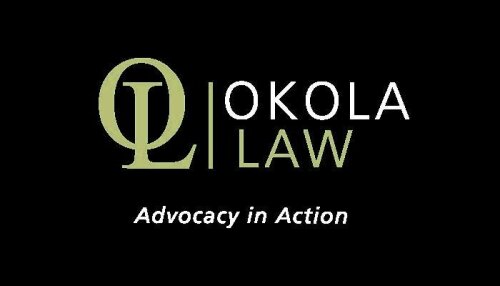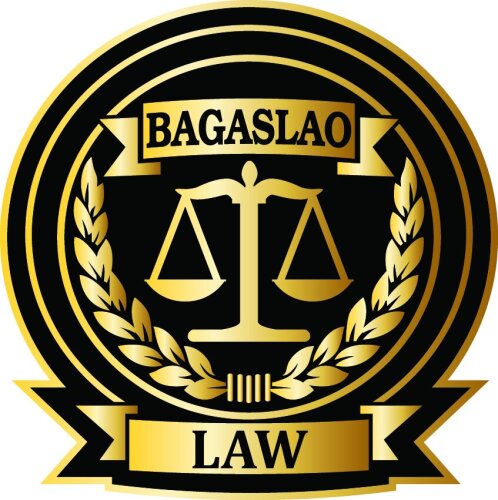Best Child Support Lawyers in Canada
Share your needs with us, get contacted by law firms.
Free. Takes 2 min.
Free Guide to Hiring a Family Lawyer
Or refine your search by selecting a city:
List of the best lawyers in Canada
About Child Support Law in Canada
Child support is a crucial element of family law in Canada, designed to ensure that children receive financial support from both parents, even if they do not live together. The guidelines for child support in Canada are primarily governed by the Federal Child Support Guidelines, which apply to all provinces and territories. These guidelines establish the amount of child support based on the paying parent's income and the number of children in need of support. The main objective of child support is to reflect the continued financial obligations of both parents, promoting fairness and the well-being of the child involved.
Why You May Need a Lawyer
While many parents can amicably agree on support arrangements, situations often arise where legal assistance is necessary. You may need a lawyer in the following circumstances:
- Disagreements over the amount of child support to be paid.
- Complex income situations, such as self-employment or fluctuating earnings.
- Modifications to existing child support arrangements due to changes in financial circumstances.
- Enforcement actions when one parent fails to meet their financial obligations.
- Interpretation and application of provincial/territorial guidelines in conjunction with federal laws.
- Cross-jurisdictional issues if parents or children reside in different provinces or countries.
Local Laws Overview
Child support laws can have variations across Canadian provinces and territories, though they are all anchored by the Federal Child Support Guidelines. Key aspects include:
- Income Calculations: Local laws may have specific provisions for calculating income, especially in complex financial situations.
- Special or Extraordinary Expenses: These could include childcare, healthcare, education, and extracurricular activities, which may require additional support beyond the basic amounts.
- Enforcement: Each province has mechanisms in place, such as Maintenance Enforcement Programs (MEP), to ensure child support is paid on time.
- Dispute Resolution: Provinces may offer mediation services to help resolve child support disputes outside of court.
Frequently Asked Questions
What is the Federal Child Support Guideline?
The Federal Child Support Guidelines are a set of rules and tables used to determine the amount of child support that should be paid by a parent based on income and the number of children they are supporting.
How is child support calculated in Canada?
Child support is typically calculated using the paying parent’s gross annual income and standardized tables that account for the number of children being supported, adjusted for provincial differences in cost of living.
Can we agree on a different child support amount than the guidelines suggest?
Parents can agree on a different amount, but it must be reasonable and in the child's best interest. The court can reject an agreement if it believes the child’s needs aren’t adequately addressed.
What happens if a parent doesn't pay child support?
In cases of non-payment, enforcement agencies can take actions including garnishing wages, suspending licenses, or even seizing assets to fulfill child support obligations.
How often can child support be modified?
Child support can be modified whenever there’s a significant change in circumstances, like income fluctuations, changes in custody, or new responsibilities.
Do I still have to pay child support if my child lives with me part-time?
Shared custody can impact child support amounts, but both parents generally still have financial obligations. The arrangements depend on the specific custody agreement and income levels.
Does remarriage affect child support payments?
Generally, remarriage does not directly affect child support obligations, which are based on biological parents’ incomes. However, changes in financial situations may prompt a reassessment.
Is child support taxable in Canada?
Child support is not considered taxable income for the receiving parent, and it is not a tax-deductible expense for the paying parent.
What are "special or extraordinary expenses"?
These are additional costs related to a child's care above basic child support needs, such as medical treatment, private school fees, or extracurricular activities, requiring separate financial contributions.
How do I enforce a child support order if the other parent lives in a different province?
Interprovincial enforcement is possible through reciprocal agreements where the court orders or agreements made in one province are recognized and enforced in another.
Additional Resources
For those seeking more information or assistance, the following resources can be instrumental:
- Government of Canada’s Department of Justice website for child support guidelines and calculators.
- Provincial/Territorial Maintenance Enforcement Programs (MEP).
- Legal Aid offices in your province for assistance if you cannot afford a lawyer.
- Family Justice Centers providing mediation and legal advice services.
Next Steps
If you need legal assistance for child support, consider the following steps:
- Consult a Family Lawyer: Seek a lawyer specializing in family law and child support to discuss your case.
- Gather Financial Documents: Collect all necessary financial documents, including income statements, tax returns, and any relevant custody orders.
- Consider Mediation: Explore mediation services for resolving disputes amicably before heading to court.
- Contact Provincial MEP: If you face enforcement issues, reach out to your local Maintenance Enforcement Program for assistance.
- Stay Informed: Regularly review changes in child support laws and guidelines to ensure compliance and awareness.
Lawzana helps you find the best lawyers and law firms in Canada through a curated and pre-screened list of qualified legal professionals. Our platform offers rankings and detailed profiles of attorneys and law firms, allowing you to compare based on practice areas, including Child Support, experience, and client feedback.
Each profile includes a description of the firm's areas of practice, client reviews, team members and partners, year of establishment, spoken languages, office locations, contact information, social media presence, and any published articles or resources. Most firms on our platform speak English and are experienced in both local and international legal matters.
Get a quote from top-rated law firms in Canada — quickly, securely, and without unnecessary hassle.
Disclaimer:
The information provided on this page is for general informational purposes only and does not constitute legal advice. While we strive to ensure the accuracy and relevance of the content, legal information may change over time, and interpretations of the law can vary. You should always consult with a qualified legal professional for advice specific to your situation.
We disclaim all liability for actions taken or not taken based on the content of this page. If you believe any information is incorrect or outdated, please contact us, and we will review and update it where appropriate.
Browse child support law firms by city in Canada
Refine your search by selecting a city.












